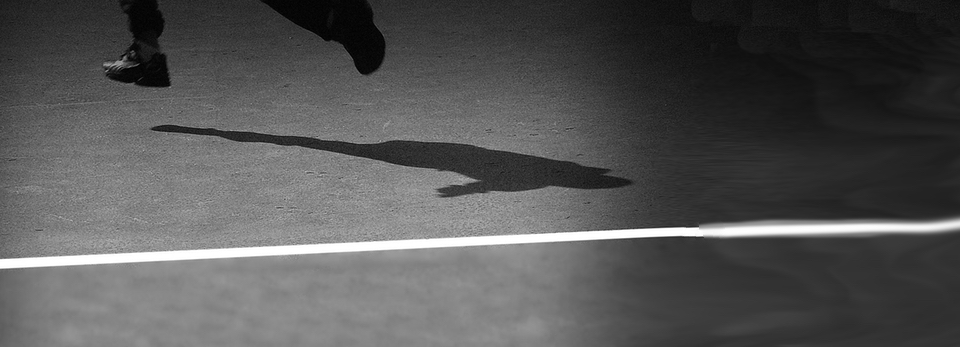When F.B.I. Forensic Profiler, Will Graham, stands before a murder scene in NBC’s Hannibal, his preternatural empathy for the show’s killers animates the tableau before him, restaging their crimes and allowing him access to their motivations. “This is my design,” Graham whispers in early episodes, as he gleans from the swoop of a blood spatter, or the arrangement of severed limbs…
View More Consuming Television’s Golden Age with Hannibal LecterCategory: Previous Issues
Responding to the Chance of Space in Marshland
Doreen Massey, writing in her visionary book For Space, sets out a rallying cry for the building of interrelationships in the spaces of the contemporary world: ‘In this other spatiality, different temporalities and different voices must work out means of accommodation. The chance of space must be responded to’. In…
View More Responding to the Chance of Space in Marshland
Medieval Jesus Fan Fiction
This article will examine a late-thirteenth-century text, the Enfaunces de Jesu Crist [Childhood of Jesus Christ], in the context of the recently developed field of fan studies. The text was edited in 1985 by Maureen Boulton, and is written in the Anglo-Norman dialect of French spoken by the élite members of society in England following the Norman Conquest.
View More Medieval Jesus Fan FictionCrossing the Line: Characters’ Re/actions as a Driving Force of Narrative
I have not come across many people who don’t believe that we define ourselves through actions. We are what we do; we are the sum of our actions. Whether we take an existentialist approach to subjectivity and claim that we are fully responsible for every action, whether we take a Structuralist stance and believe that our subconscious mind…
View More Crossing the Line: Characters’ Re/actions as a Driving Force of NarrativeOn the Political Aesthetics of Metadata
In the twenty-first century, the term “metadata” has appeared in the popular news press with increasing frequency. For instance, recent arguments made by proponents of mass surveillance have focused on the fact that the content of messages may be irrelevant for spy agencies; such organizations are instead more interested in knowing…
View More On the Political Aesthetics of MetadataCaring about things in Siri Hustvedt’s The Blindfold
What does it mean to care about things? The Blindfold, Siri Hustvedt’s first novel, dangles this question in a series of set-pieces, moments of glimpsing into the weirdness of the everyday, the objects that fill it and the ways in which these objects are, might, should or shouldn’t be handled. The Blindfold’s objects are animate or border on animation…
View More Caring about things in Siri Hustvedt’s The BlindfoldDuration Without Breaks: Marclay and McQueen Against the Clock
‘There is a bitter and dark struggle around time and the use of time’. Thus wrote Henri Lefebvre and Catherine Régulier in an 1985 article later collected in Lefebvre’s final set of essays, Rhythmanalysis, posthumously published in 1992 (Lefebvre 83). As if the day is not long enough for all our repetitive tasks, the …
View More Duration Without Breaks: Marclay and McQueen Against the ClockRe-imagining Bluebeard’s Wives: Helen Oyeyemi’s Mr Fox
In a Granta Magazine interview with Ted Hodgkinson, Helen Oyeyemi talks about re-writing the endings of canonical texts to suit her own reading of the novel in question. Writing in the margins of library books, Oyeyemi ‘would cross out endings that I didn’t like and I would rewrite them […] I would order everything to …
View More Re-imagining Bluebeard’s Wives: Helen Oyeyemi’s Mr FoxSiri Hustvedt’s The Blazing World: Does Art Have a Gender Identity?
In her most recent novel The Blazing World (2014), Siri Hustvedt raises the problem of sex biases in the art world. One of the central premises of the book is that works of art executed by women are rated significantly lower than the same piece by a man. “Does art really have a gender identity”, asks Hustvedt …
View More Siri Hustvedt’s The Blazing World: Does Art Have a Gender Identity?Queerversity: Desire and Sexuality in China Miéville’s Fiction
Antke Engel, who works in the field of gender studies and queer theory, points out that gender difference and heteronormativity are organised by two mechanisms of power, normalisation and hierarchisation. Binary constructs have a crucial function in these processes. They influence concepts of identity and self-identification but are undermined by …
View More Queerversity: Desire and Sexuality in China Miéville’s Fiction









